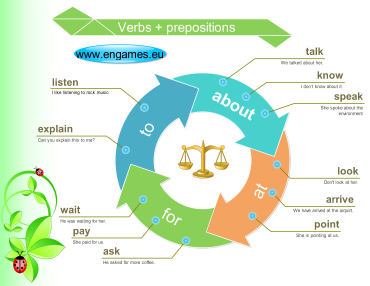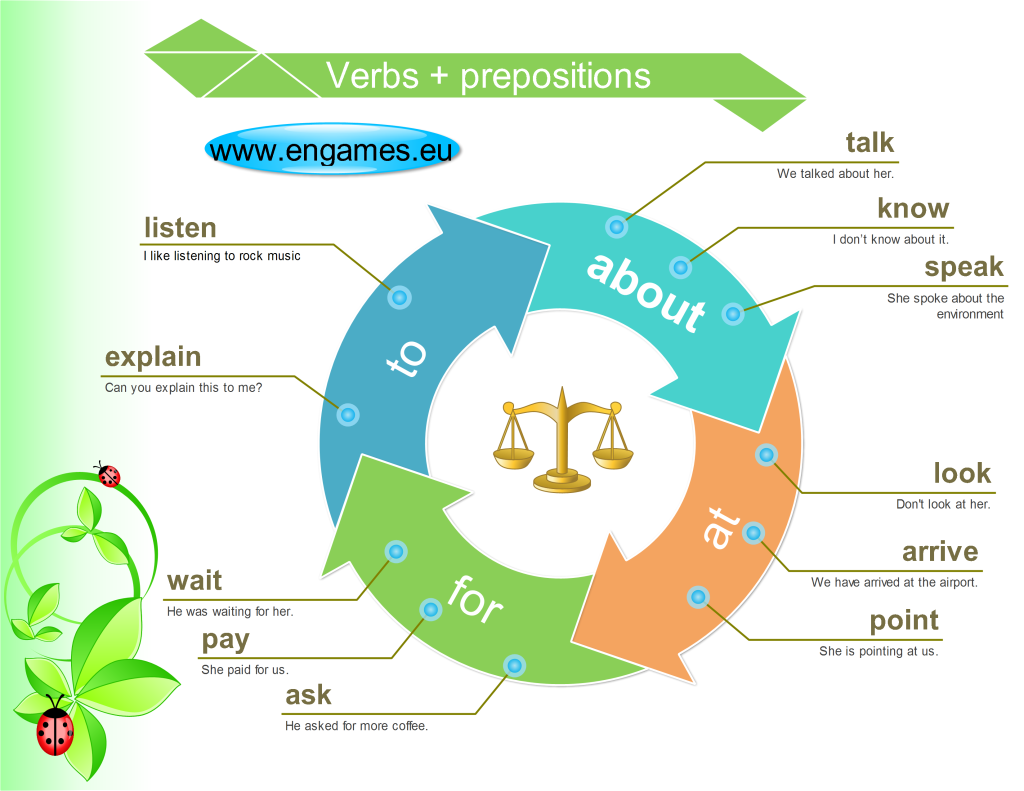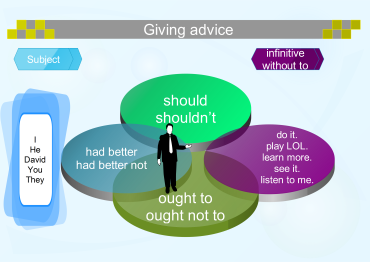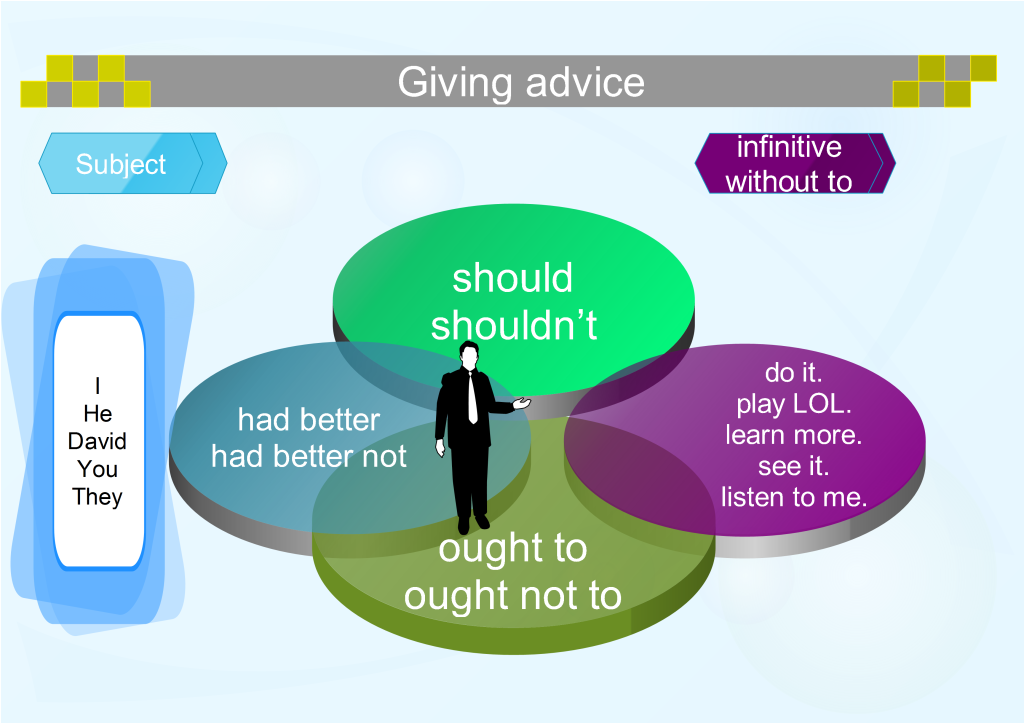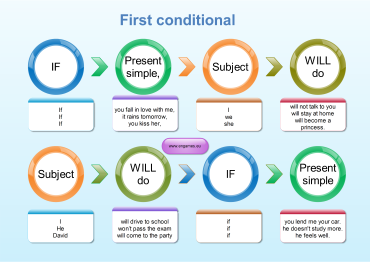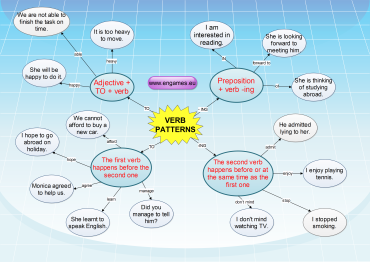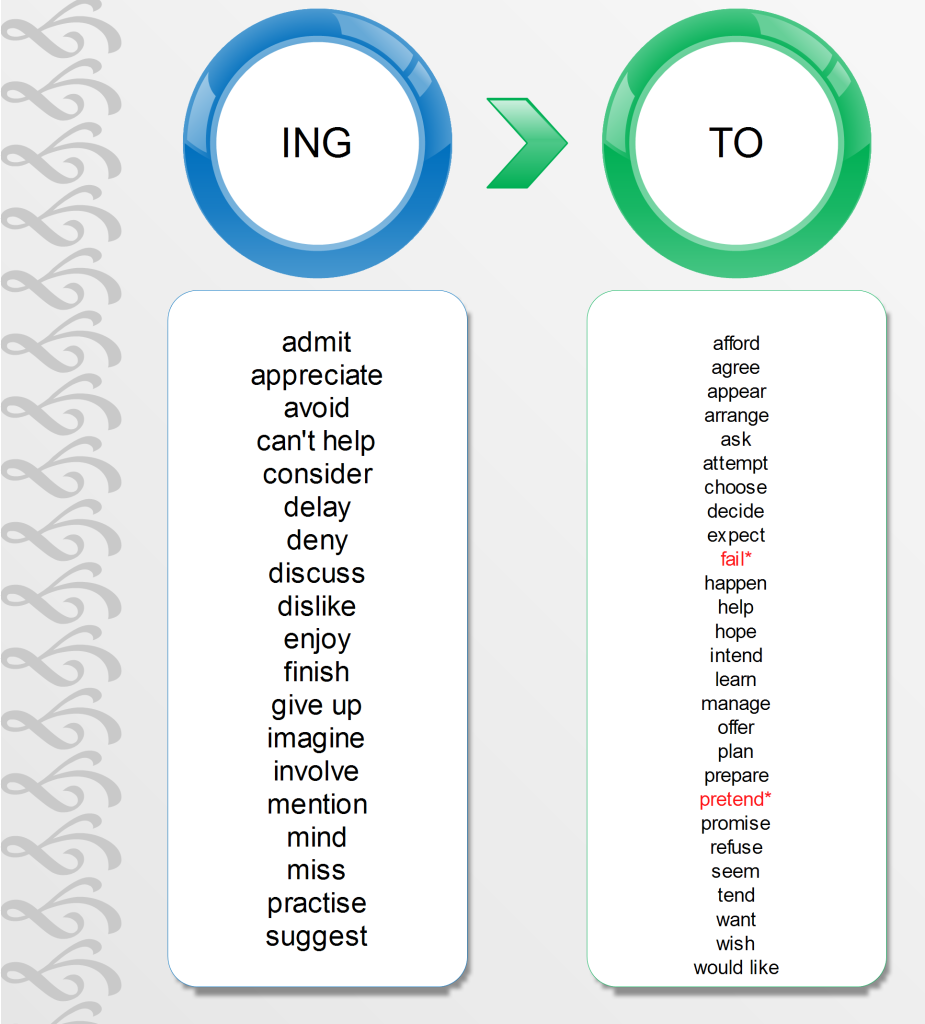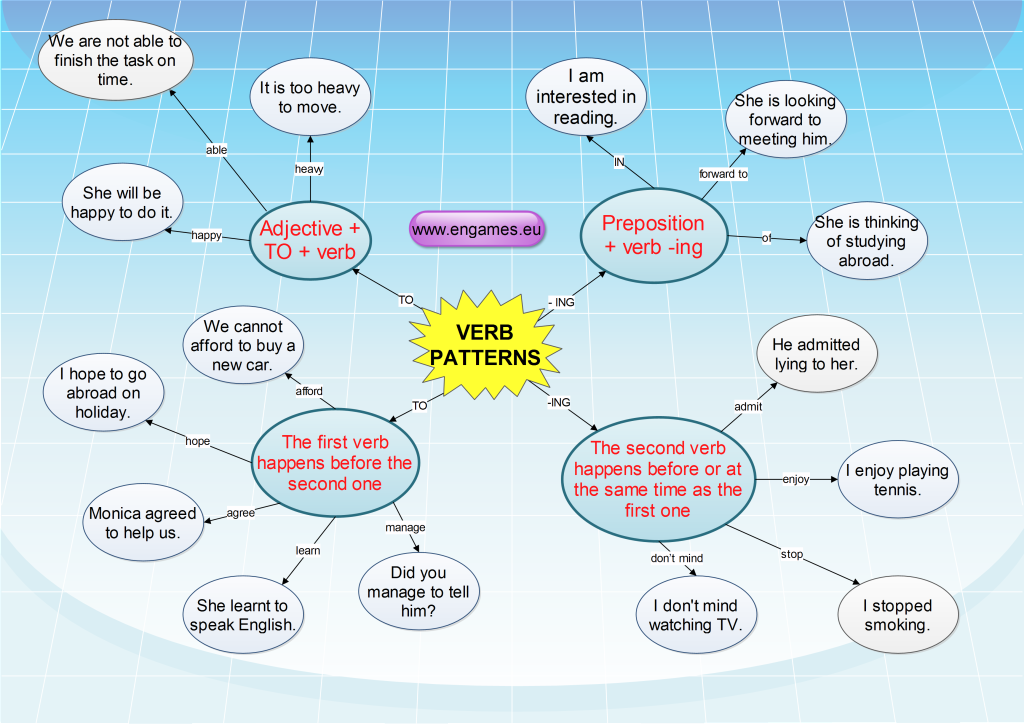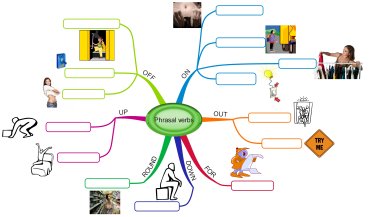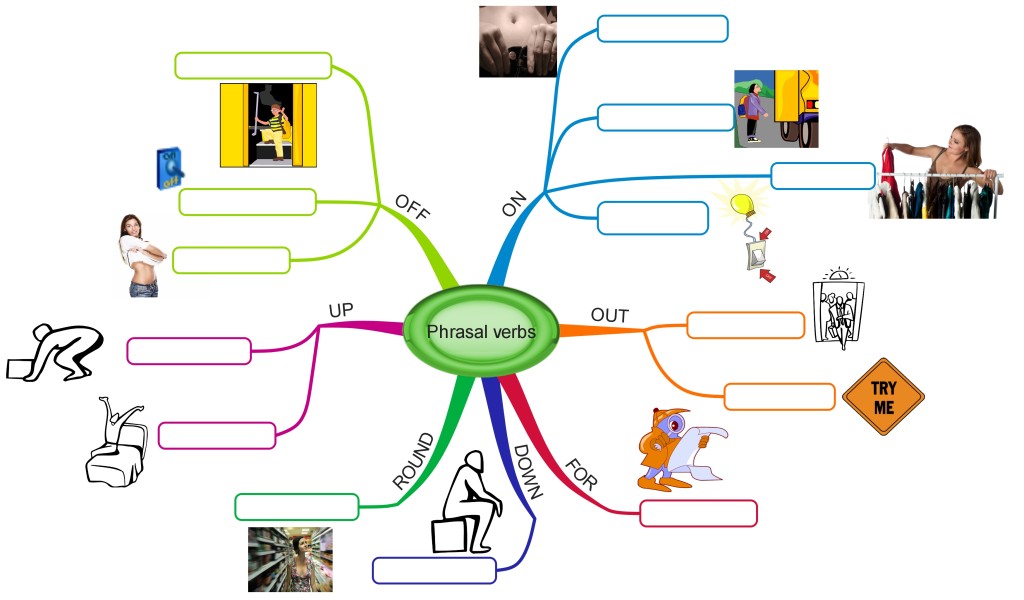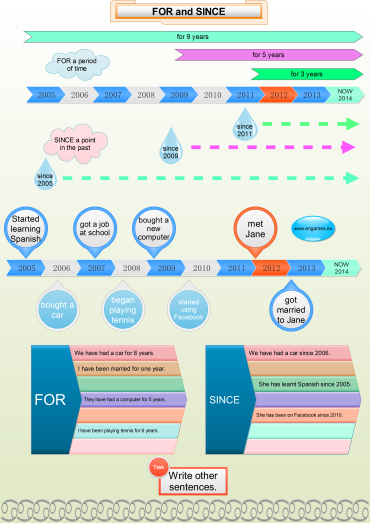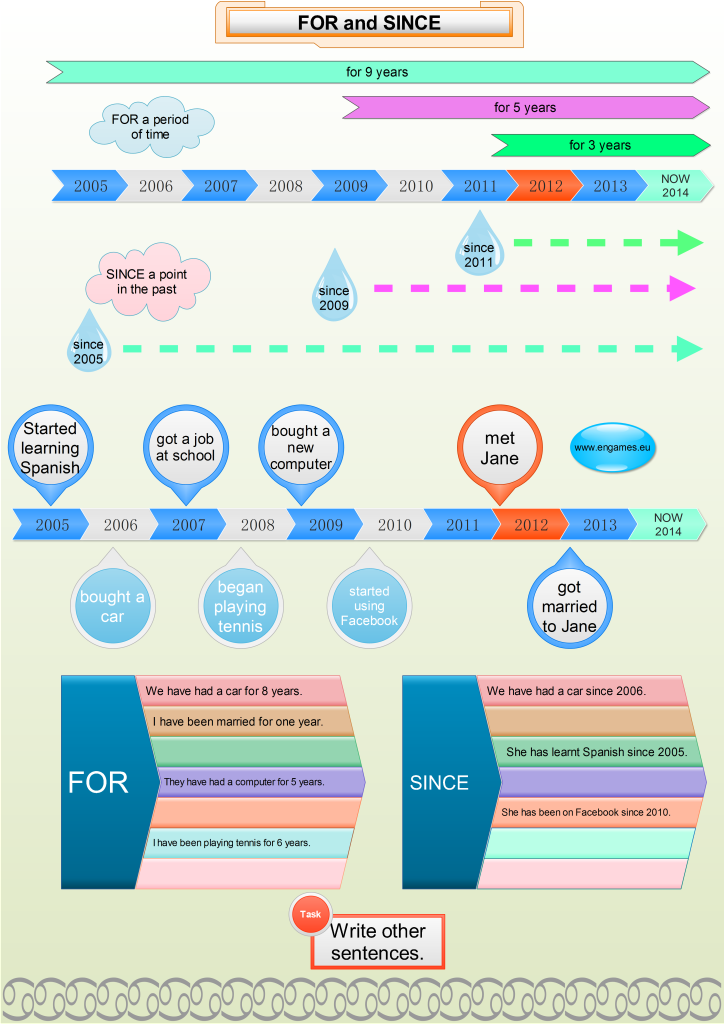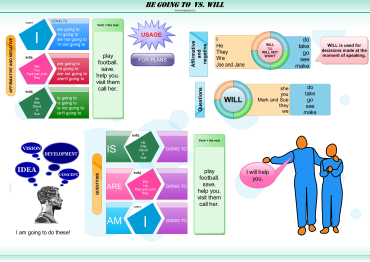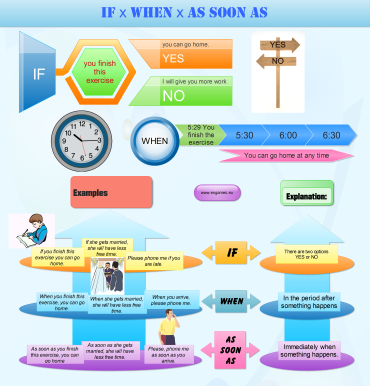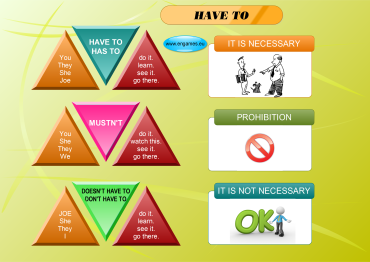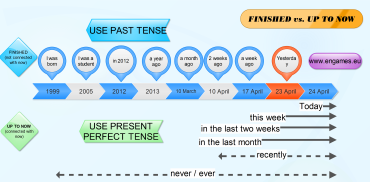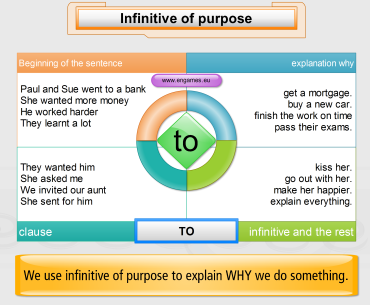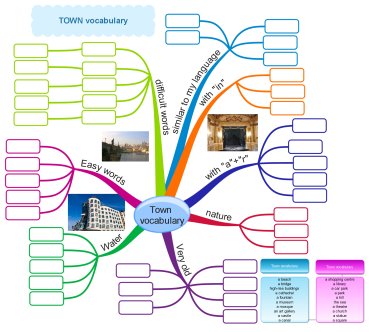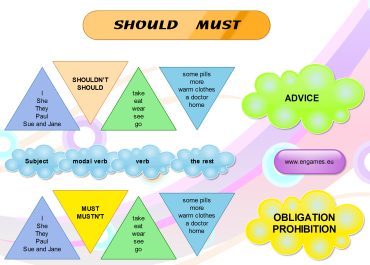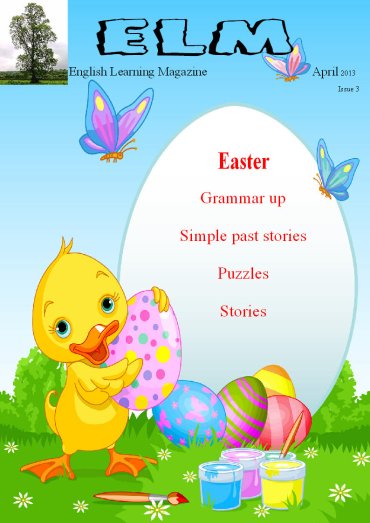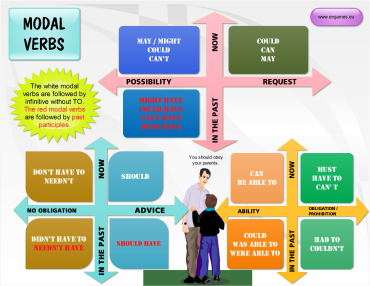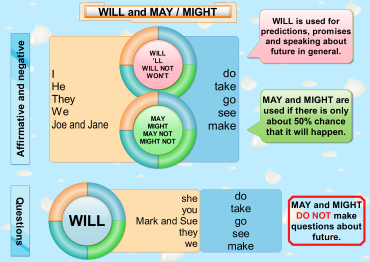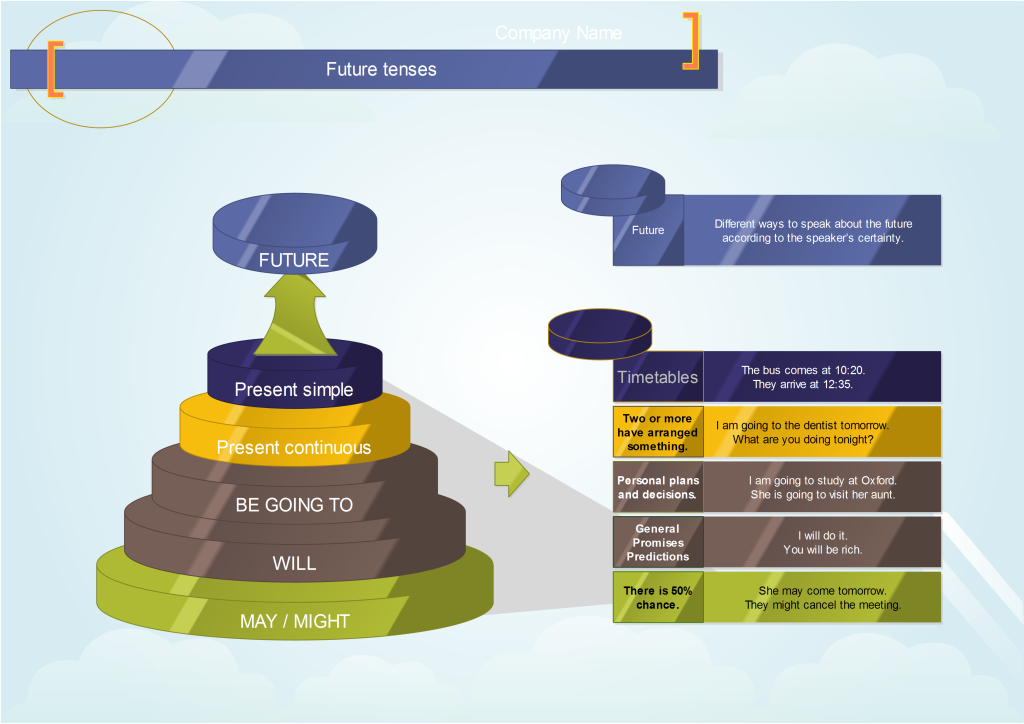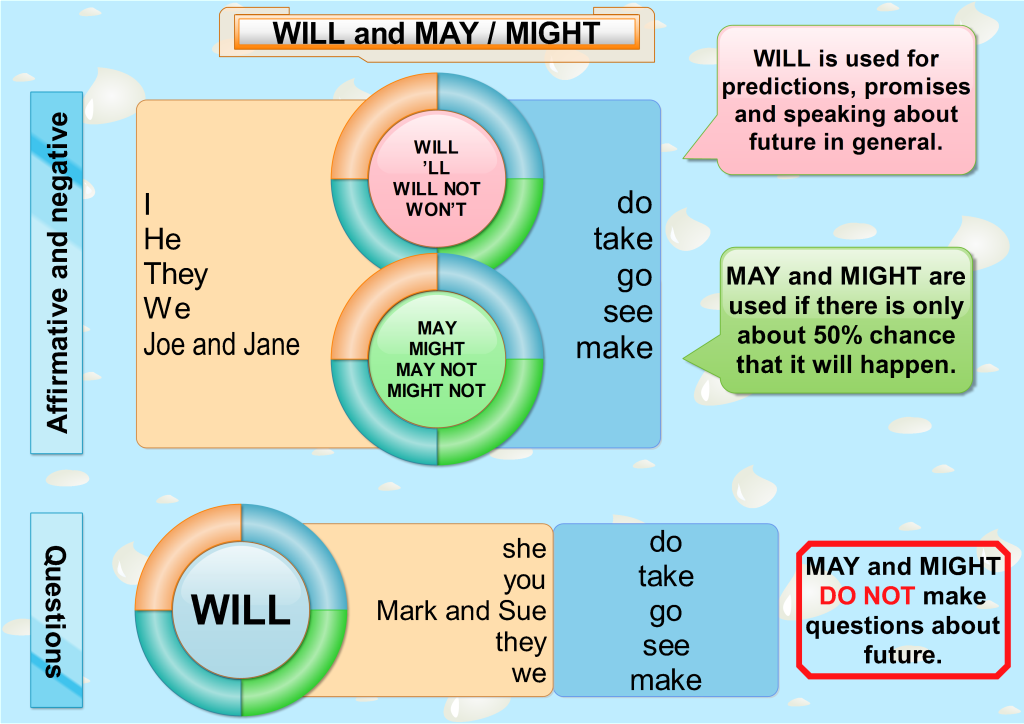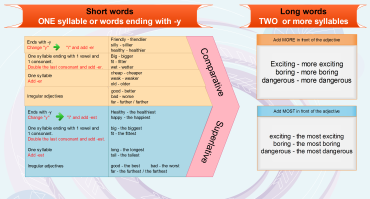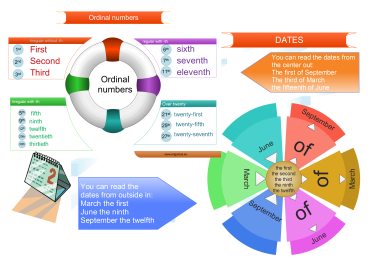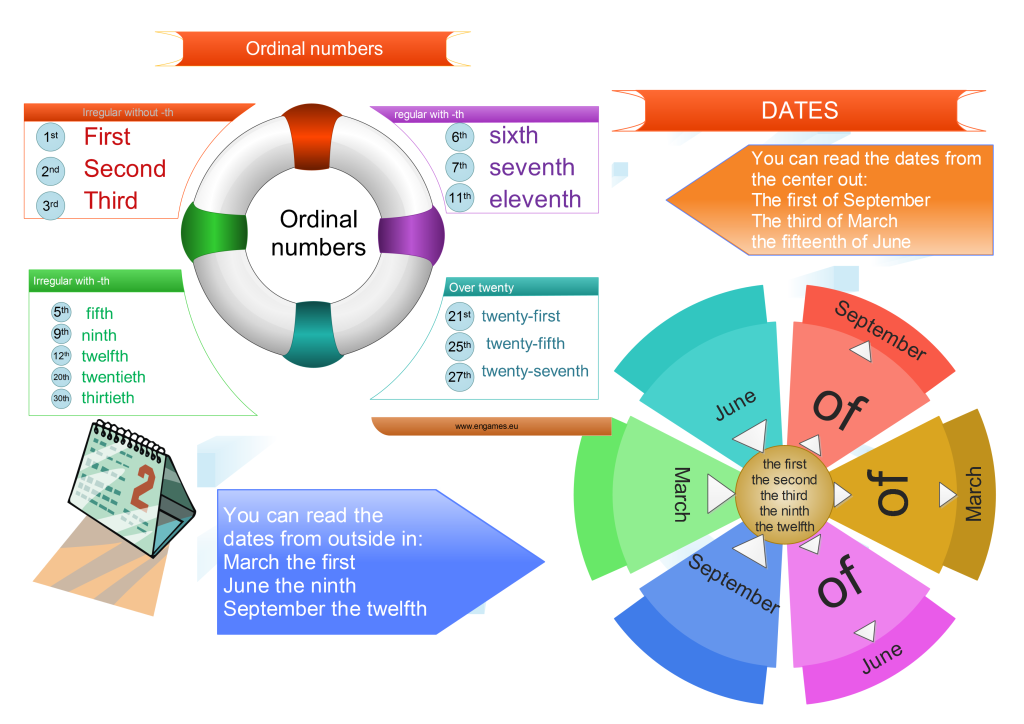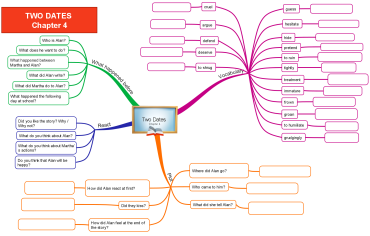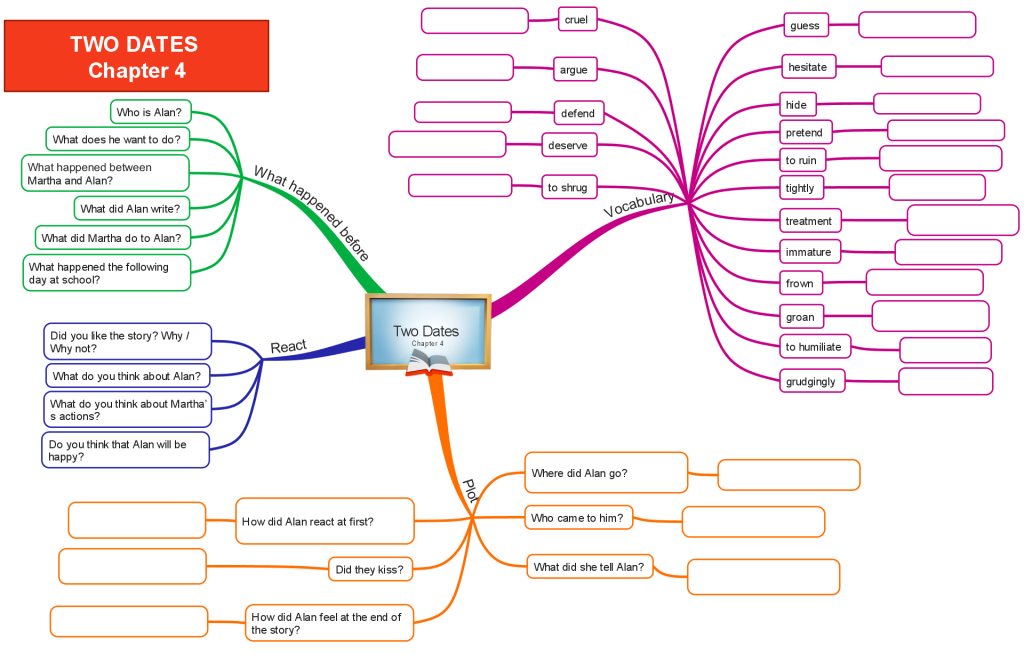Games to help students learn English.
Many verbs in English are often followed by the same preposition. Therefore it is best to learn them togehter from the beginning. However, even if you do this it is neccessary to sum it up from time to time.
ADVERT
[showmyads]The following summary was created for my elementary students of English and it contains the verbs they know which are often followed by the prepositions FOR, ABOUT, AT and TO.
In this post you can find a mind map and two games to practise the usage of the given preposition.
Prepositional pharses – mind map
The following mind map graphically shows the verbs which are used with the prepositions FOR, ABOUT, TO and AT.
Verbs and prepositions – games
Once you memorise all the verbs and prepositions that follow them you can try the following games. In the first game you should complete the sentences with the correct preposition. If you succeed you can play the game Highway Race. In this game you try to avoid all the cars on the highway. The best result has been 50,000 points. Can you do better?
The second game is a classic. It is called Teacher Invaders and your task is to shoot all the invaders before they destroy the whole planet. However, from time to time the game is interrupted and you have to complete a sentence with the correct preposition. Good luck.
More posts on prepositions
If you liked this post and you feel that you need to practise the prepositions more you might like the following posts on our site.
Do you think that we should create some more posts? Please leave a comment and we might do it.
Recently I have published a post on giving advice. And our post on modal verbs won the British Council blog award. This post will deal with three ways to express the modal verb SHOULD. The different means are HAD BETTER and OUGHT TO. Both of these have the same meaning as SHOULD.
This grammar point often appears in FCE tests. So if you are planning to take an international certificate in English this post is really important for you.
OUGHT TO – mind map
[showmyads]
Once you learn the three forms correctly you should have no problem with using them. However, remember that SHOULD is much more frequent than either OUGHT TO or HAD BETTER.
SHOULD – games
The second game is a simple quiz. Your task is to complete the second sentence in such a way that it means the same as the first one. However, you have to use the word in the bracket in your answer. There are 16 sentences and if you pass the quiz you will be given a chance to play the game Indiara. Good luck 🙂
Category: English games, Grammar, Intermediate
First conditional is very similar to time clauses. However, I would say that first conditional is easier than time clauses.
First conditional is used if we speak about two possibilities in the future. After the conjunction IF we use present simple tense and in the other clause we use WILL. You can see the explanation in the mind map below and then you can try a quiz to practise this simple grammar.
First conditional – mind map
ADVERT:
[showmyads]
The most important thing to remember is, that you cannot use WILL after IF.
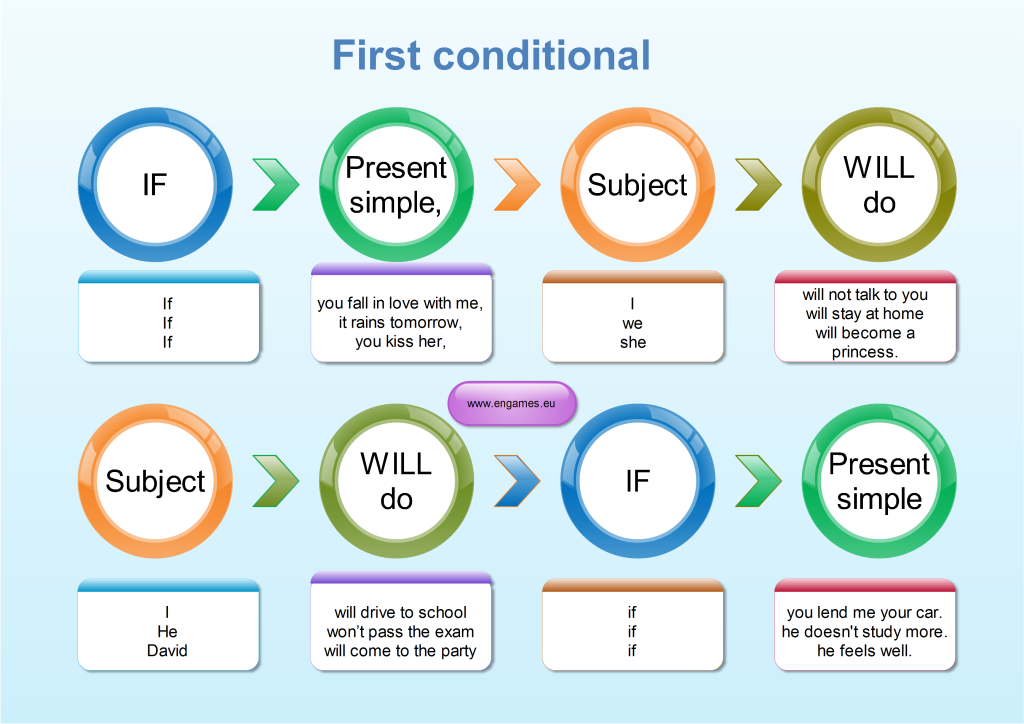
First conditional – game
In this game you have to solve the quiz first and then you can play the game Visual memory. In this game you see some coloured squares and your task is to remember them and later click on them. While the game is quite easy at the beginning, it soons becomes really difficult and my best score is 420 points. Can you do better?
Have you ever tried to memorise the following list of verbs to know when you should use TO and when the ending ING?
ADVERT:
[showmyads]
Honestly, I have never been able to commit the list to memory. And even when I thought that I know the verbs I was not really sure which form follows them. And my students had the same problem.
So I have written a post on verb patterns. But it did not work. The division of the verbs was too complicated.
And when I started to be desperate I read a short comment under a post on verb patterns. There the author described his simple rule which worked in nearly 100% cases.
The rule goes like this: “If the first verb happens before the second verb, use TO. If the second verb happens at the same time or before the first verb use the ending -ING with the second verb. For example: I want to go out. (First I want and then I will go out) She stopped smoking. (First she smoked and then she stopped.) He agreed to do it. (First he agreed and then he did it)”
Simple, isn’t it? However, you have to be careful as the rule does not work for the verbs suggest, pretend and fail.
Below you can see the idea in a mind map and lower you can test it in several games.
Verb patterns – mind map
Verb patterns – games
In the second game, you should complete the quiz and if you succeed you can play the game Rock, Paper, Scissors.
Phrasal verbs make many students feel hopeless. Even advanced students struggle with them and to be honest, I am not very comfortable with them either. Moreover, they seem very hard to memorise.
That is why I have prepared the following post. There is a story where all the verbs are used. Thus you can see them in context.
ADVERT:
[showmyads]
Then you should read and listen to the story again and complete the mind map with the phrasal verbs from the story.
In the end you can practise the verbs in a quiz.
Phrasal verbs – story
Now answer the comprehension questions in the following game called On target. If you answer the questions correctly you should shoot as many bad ducks as possible. Don’t forget that you can get a bonus if you shoot any of the bottles on the walls. Phrasal verbs – game
Phrasal verbs – mind map
Games
More practice
The other post deals with phrasal verbs from a slightly different point of view. It is called Phrasal verbs separable or non-separable and it explains which phrasal verbs stick together and which can be separated.
For and since are often given as the key words which signal that present perfect tense should be used. It is not 100% true but it makes life easier for elementary and lower intermediate students.
However, sometimes it is difficult for learners to know which word they should use. The rule is simple. FOR is used when we give the length of the time (for three days) and since is used when we give the beginning of the time (since Monday). You can see the graphical explanation of this rule below.
ADVERT:
[showmyads]
In this post you can find an interactive video, where the grammar is explained and tested by the experts from BBC learning English.com, a mind map explaining the difference between FOR and SINCE graphically and a quiz with a game to practise the correct usage of the words For and SINCE.
FOR and SINCE – interactive video
For and SINCE – interactive video
FOR and SINCE – mind map
FOR and SINCE – games
FOR and SINCE – quiz
There are 22 items in this quiz. If you answer more than 60% of all the questions correct (that is not so difficult) you can play the game called Rock, Paper and Scissors. In this game you win if you give a Rock and your opponent scissors, you give a paper and your opponent gives rock and finally, you win if you give scissors and your opponent gives a paper.
SINCE and FOR – fling the teacher game
This game is slightly more difficult as you mustn’t make a mistake to win. You have to answer all the questions correctly to build the machine and fire your teacher 🙂 You can use up to three helps which are displayed on the screen.
There are many ways to speak about future in English. We have already dealt with two ways here. In the first blog we tried to distinguish between Will and MAY and Might on the basis of certainty that an event will happen.
ADVERT:
[showmyads]
In this post I would like to demonstrate the difference between WILL and BE GOING TO. BE GOING TO is used when we speak about our plans while WILL is used for decisions made at the moment of speaking.
To give you a better chance to understand the difference between the two tenses there is an interactive video (based on BBC Grammar challenge), a mind map and two games.
Future tenses – interactive video
Watch the video and answer the questions. If you answer correctly the video will continue. If you answer wrongly you will hear the part again. Give it a try. WILL and BE GOING TO – interactive video
Future tenses – mind map
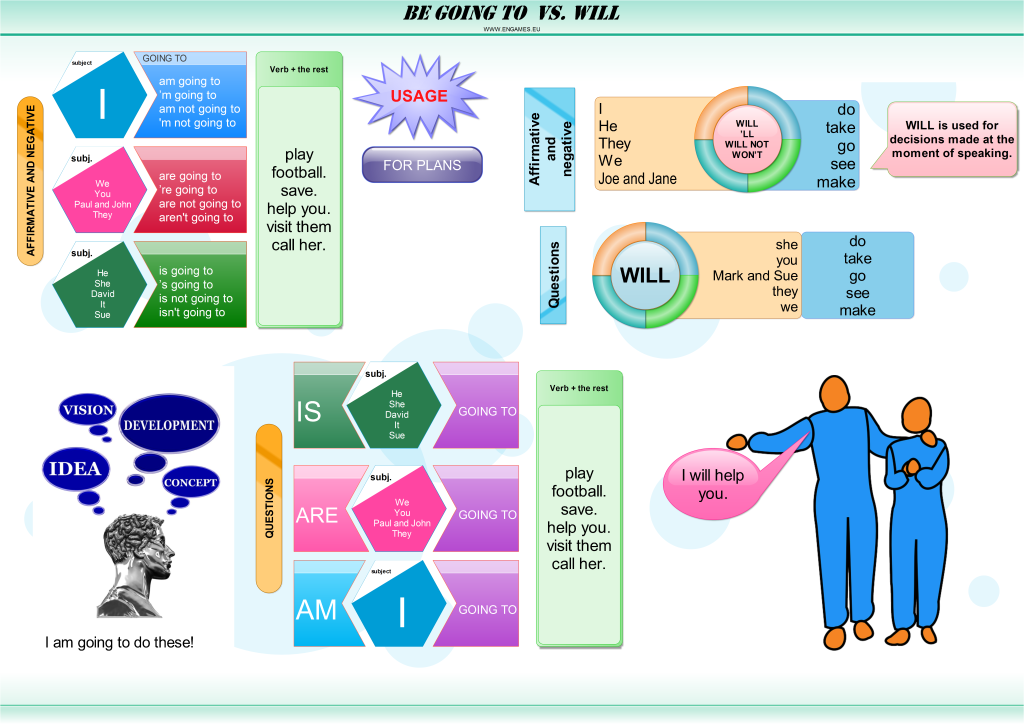
Future tenses – games
WILL and BE GOING TO – On Target In the second game you have to write the correct future form (WILL or GOING TO). If you get more than 60% of all the forms correct, you can play the game Hot Race. Enjoy.
WILL and BE GOING TO – Hot Race
Future tenses in English – share
Category: Elementary, English games, Grammar, Listening
I remember struggling with this grammar when I was at secondary school. As it is possible to translate the words IF and WITH with the same word in my mother tongue I couldn’t see the difference in English.
ADVERT:
[showmyads]
To help my students avoid this problem I have created the following mind map and several games. I hope they will help you too.
WHEN or IF – mind map
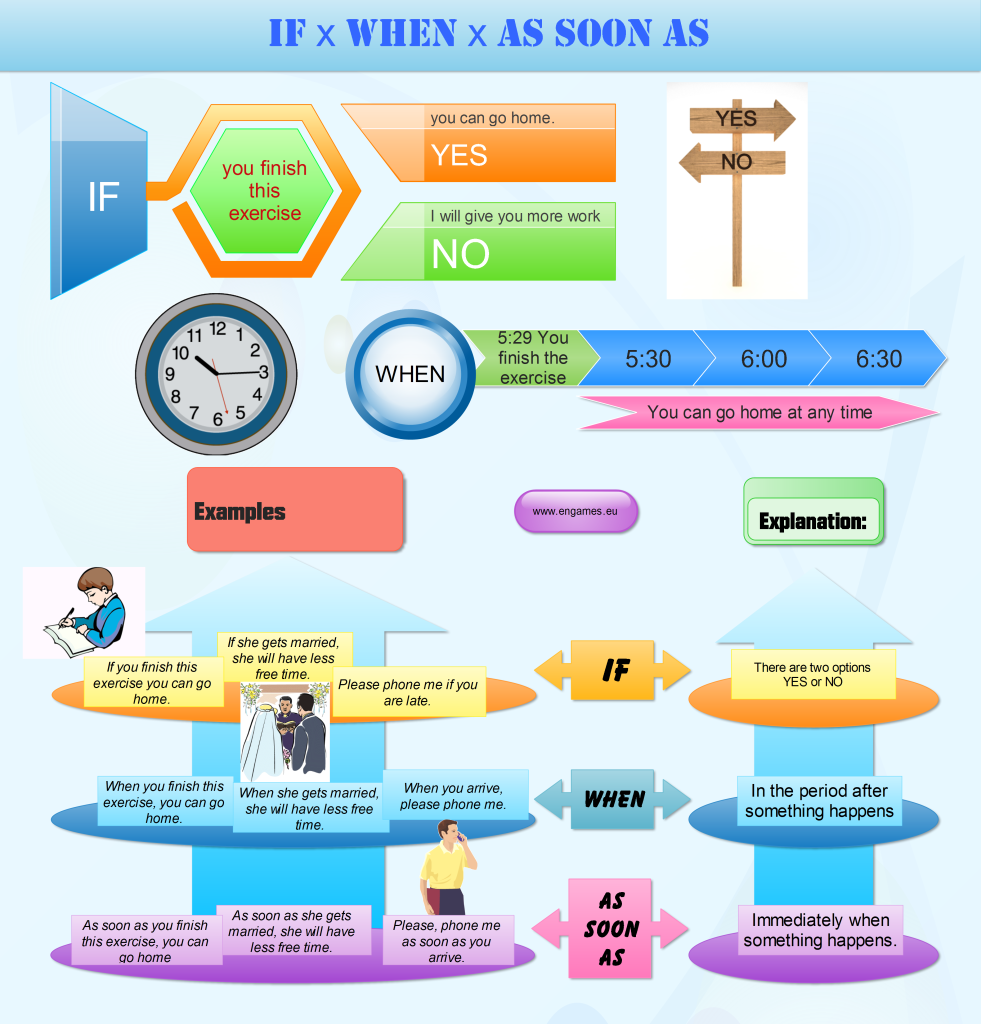
WHEN or IF – games
IF or WHEN – Speedway Race The second game is called Hoopshoot. Your task is to choose the correct option and then hit the basket with the ball. Good luck.
IF or WHEN – Hoop shoot game
Category: Elementary, English games, Grammar
Recently I have been dealing with the modal verbs. First I created a mind map depicting all the modals in present and past tenses. That post was suitable for intemediate students. Then I wrote a post about the modal verbs Must and Should which was for elementary students.
In this post I would like to add the verb HAVE TO and explain its usage in English. This explanation is aimed at elementary students. At the end of the post there are two games to practise the modal verbs.
Have to – mind map
The triangles show the way HAVE TO forms sentences and the images on the right show the meaning of the verbs.
ADVERT:
[showmyads]
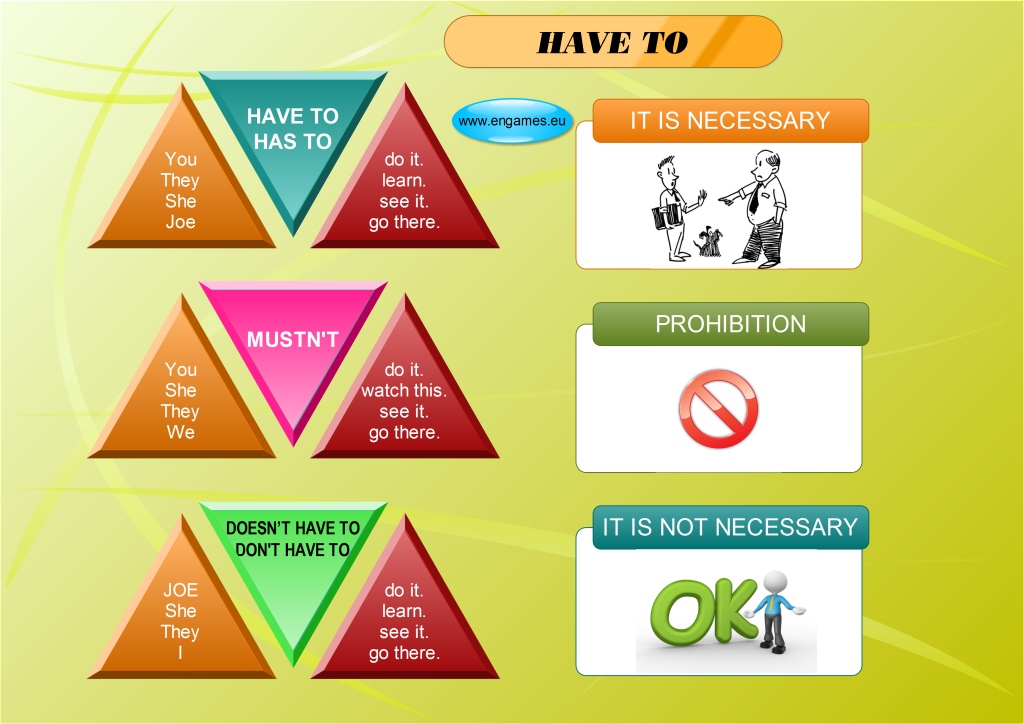
Have to – games
HAVE TO – Quiz The second game is called Reaction. Your task is to complete the sentences with the correct form of the verb HAVE. If you complete the sentences correctly, you will have to click on the ugly frog as quickly as possible. The quicker you click on the frog the better. My personal record is 18,250 points.
HAVE TO – Reaction
There have been many different attempts to explain the difference between the past simple and present perfect tenses to learners of English. I have tried to do this for example in my posts on present perfect basics, Present perfect tense vs Past simple or present perfect infographics.
In the textbook New Inside Out pre-intermediate they try to introduce the concept of “finished” and “up to now” time expressions. I think, it is not a bad way to distinguish between the past simple and present perfect tenses.
ADVERT:
[showmyads]
According to the textbook, finished times are a the expressions which refer to a period or moments that finished in the past and are not connected to the present (for example, yesterday finished several hours ago and this is not connected to now). On the other hand, up to now time expressions refer to periods which are somehow connected to the present time (for example, today is still going on till this moment).
Then the theory is quite simple. If you use a time expression for finished time, use past simple tense. If you use a time expression for up to now time, use present perfect tense.
Present perfect tense – a mind map
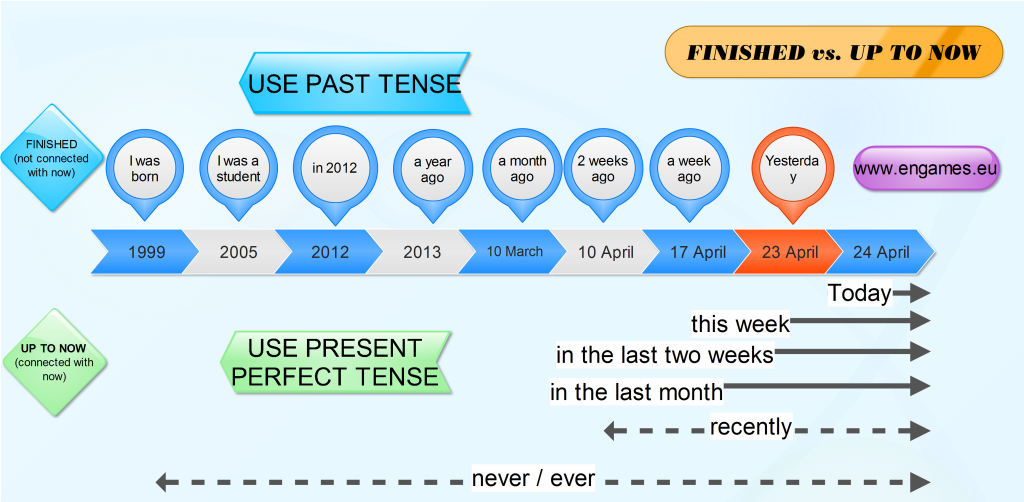
The finished times are just the points on the timeline. On the other hand, the up to now times are connected to the present moment.
Present perfect tense – games
Present perfect tense – quiz and Hot race In the second game your task is to choose the correct option and then if you are successful you should shoot all the bad ducks.
Present perfect tense – On target
English Learning Magazine
At our sister site englishlearningmagazine.com we have published a new text on Prague. There is a text and a quiz to check your comprehension. It is mobile phones friendly, so give it a try.
This is one of the easiest grammar points for the Czech students because in their mother tongue there exists a structure which is similar to infinitive of purpose. Because of this, I am not going to spend too much time and energy on this grammar point.
Advert:
[showmyads]
There is just a mind map explaining and demonstrating the infinitive of purpose and a game where you can practise the grammar.
Infinitive of purpose – mind map
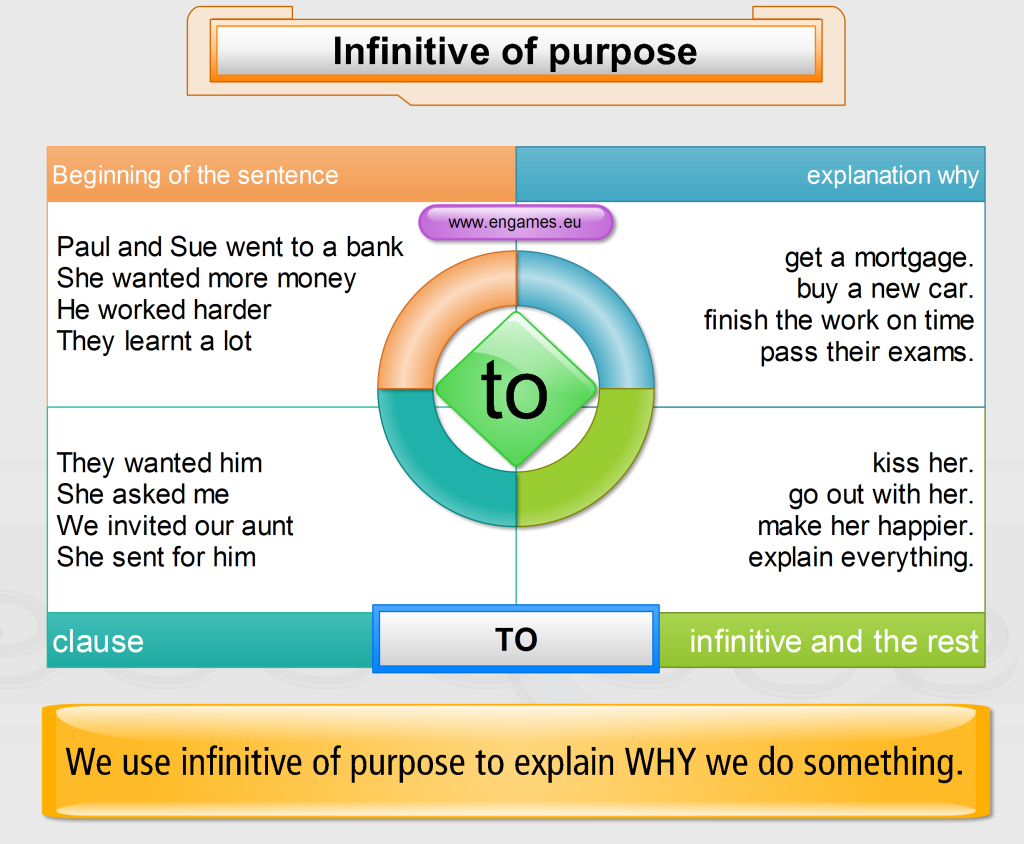
Infinitive of purpose – a game
The environment is one of the most frequently discussed topics in the world. However, to be able to speak about this topic you need some basic vocabulary. In this post I try to introduce some words related to the topic of Environment. Later you can practise the new words in games.
ADVERT:
[showmyads]
In this post on you can find a video presentation of all the words given here:
sewerage system
green
nature reserve
fossil fuels
smog
global warming
greenhouse effect
rural
endangered species
go off
die out
run out of
give off
cut down
bring out
clear up
throw away
Environment vocabulary – video
Environment vocabulary – mind map
Environment vocabulary – games
The first game is a simple quiz. Your task is to match the words and definitions, and then complete the sentences with the new words. If you pass the quiz you can play the game called Angry Finches as long as you like.
Environment vocabulary – quiz
The second game is called Reaction and your task is to complete the sentences with the missing words and then click on the ugly frog as quickly as possible.
The third game is a dictation game. Listen to the sentences and if you write them correctly you will be given a chance to play the game called Hot race.
The last game is just loosely connected to the topic. It is called Reaction and your task is to write the adjectives of the given words. If you create the adjectives correctly you will play the game Reaction. Wait till the ugly frog appears and then click on it as quickly as you can.
In this post I would like to introduce about 20 new words connected with towns. These words are neccessary if you want to speak about the place where you live or stay.
The vocabulary is for elementary and pre-intermediate students and it covers different basic features which can be found in towns and cities.
ADVERT:
[showmyads]
This post contains a video with the correct pronunciation and example sentences. Then there is a mind map to help you organise the vocabulary and learn it. In the last part there are several games to give you an opportunity to practise the town vocabulary.
Town vocabulary – video
If you feel that you need to practise the words, watch the video several times.
Town vocabulary – mind map
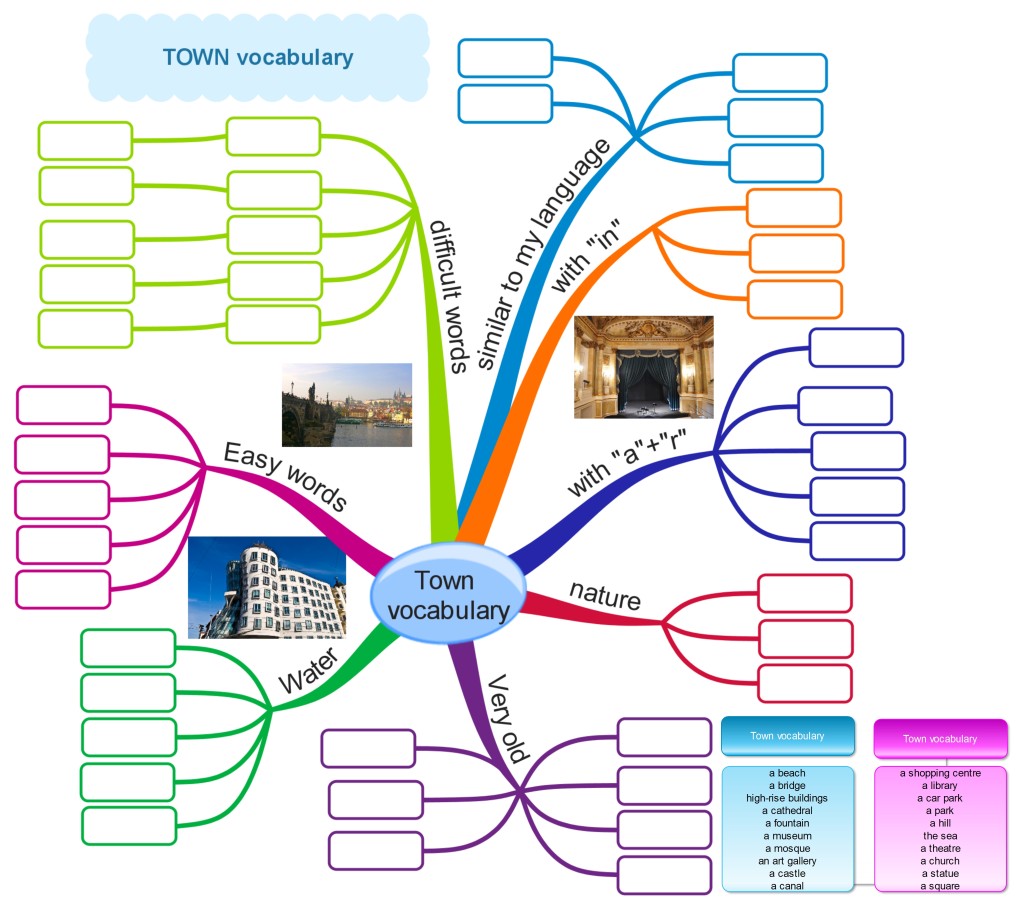
Town vocabulary – games
Town vocabulary – quizzes and games Many of my students feel that listening is the most difficult skill. Therefore, I have prepared the following dictation activity. You will hear several sentences and your task is to write the sentence you hear. If you are successful, you will get a chance to play the game Rock, scissors and paper. (Of course, you can skip the game, if you do not want to play it. Just click on the NEXT button and you will get another dictation.)
Town vocabulary – dictation
This post deals only with the basic usage of the modal verbs SHOULD and MUST. I have recently written a post on Modal verbs. This post was aimed at intermediate students and it demonstrated the usage and meaning of all the modal verbs in present and past tenses.
You can find here a graphical presentation of the usage of the verbs SHOULD and MUST and several completely new games to practise the usage of these verbs.
SHOULD and MUST – mind map
Here is the graphical presentation of the two modal verbs:
ADVERT:
[showmyads]
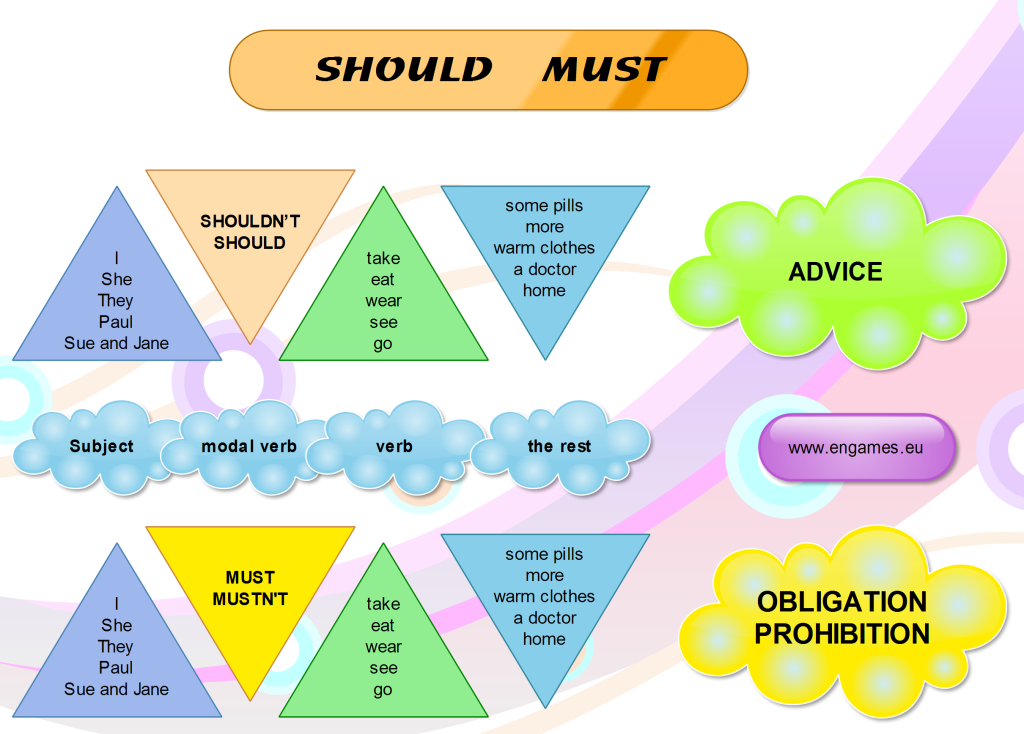
SHOULD and MUST – games
This time there are three different games to practise the two verbs. All the games are completely new and in one case there is more playing than learning.
The first game is called Reaction. Your task is to answer each question by filling in SHOULD or SHOULDN’T. If you answer correctly you have to wait till the frog appears. Once it appears, your task is to click on it as quickly as you can. My record is 18,250. Will you be better?
SHOULD – Racing game In the third game you have to complete the sentences with MUST or MUSTN’T. If you complete the whole exercise correctly, you can play the game Rock, Scissors and Paper. Can you beat the computer?
MUST – Rock, scissors and paper
BRITISH COUNCIL – Blog award
Thanks for your support.
Finally, Easter is here. I have been looking for this holiday for weeks and it has arrived. I am really happy.
Last year I and Lynne Blackburn devoted a lot of time to our project called ELM (English Learning Magazine.) We created a full 14 page long magazine about Easter.
The magazine contains two articles about Easter traditions in Great Britain and in the Czech Republic, two stories for elementary students to practise past simple tense, two comics and several puzzles for fun.
ADVERT:
[showmyads]
You can download the file here:
ELM – EasterStudents usually understand the usage of the modals in present tense very quickly. However, when they start speaking about the past, they use the present tense or some non-existent forms, like “musted”.
Here I’ve tried to create a simple overview of all the modal verbs and their usage in present and past tenses. I hope you will find it at least a bit useful.
Modal verbs – mind map
ADVERT:
[showmyads]
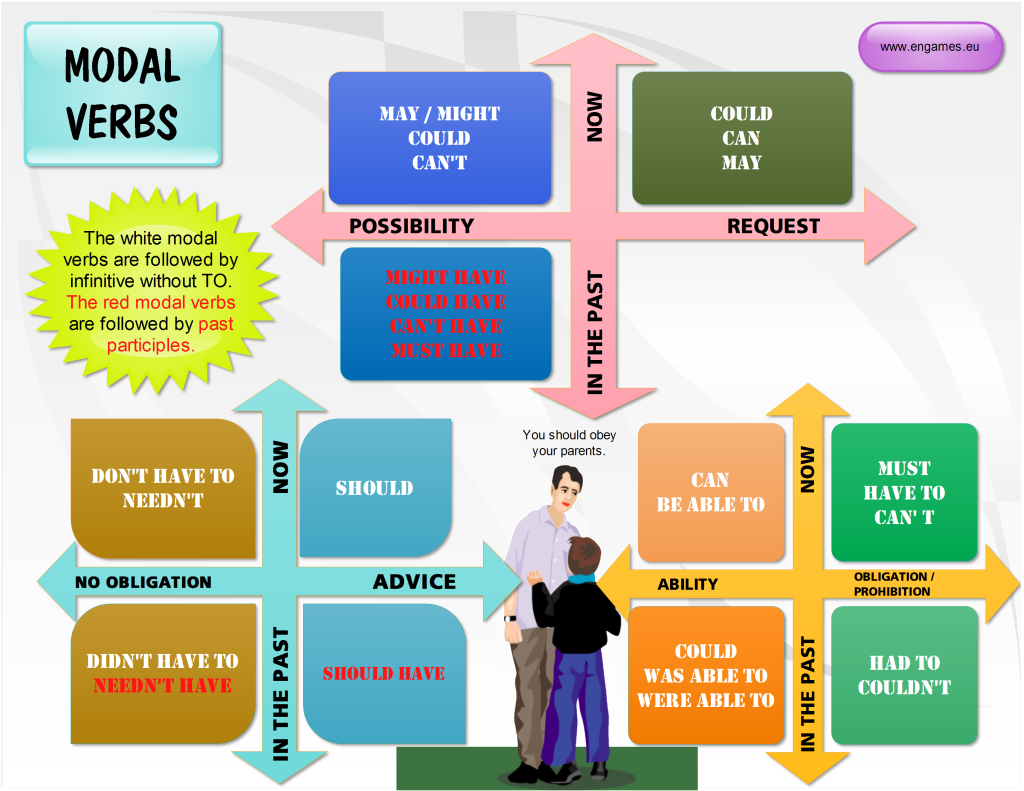
Modal verbs – games
English Learning Magazine
Or you could practise the names of the plants in a post which contains the video with the names of the plants and three tests. Moreover, you can listen to a song and complete its lyrics.
The whole site is mobile phones friendly (unlike this one, where the games play only on desktops).
Enjoy.
In English there are many ways to speak about future and at the same time there are many grammarians who claim that there is nothing like a future tense in English. I do not want to discuss this issue here, I would only like to present two ways of speaking about future.
ADVERT:
[showmyads]
First I will introduce the basic system of future tenses in English according to the speaker’s certainty. The tenses presented at the bottom of the pyramid are the least certain to happen. The tenses at the top of the pyramid are the most certain.
MAY/MIGHT and WILL – mind map
MAY/MIGHT and WILL – GAMES
Will and Might – On Target In the second game you should choose the correct form again and score a basket. Good luck.
Will and Might – Hoop shoot
Category: Elementary, English games, Grammar
Comparative is used when you want to compare two things. For example one person is tall and the other is short. So you will say: Person A is taller than person B. OR Person B is shorter than person A.
You can see some more examples below in the picture.

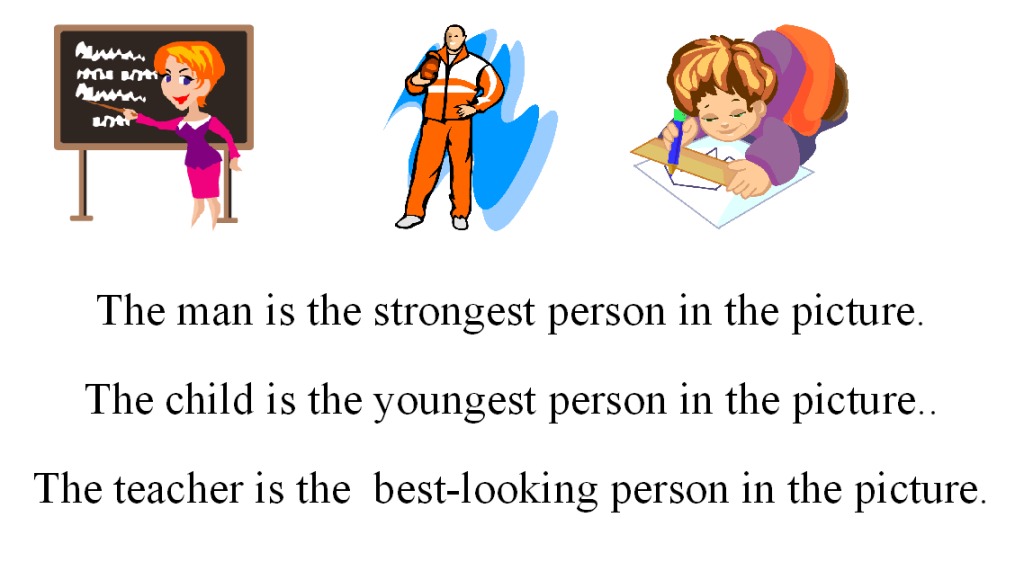
Grammar explanation – mind map
If the adjective has two or more syllables and it does not end with “Y” then it is a long adjective and you have to add “more” or “most” in front of the adjective.
Advert:
[showmyads]
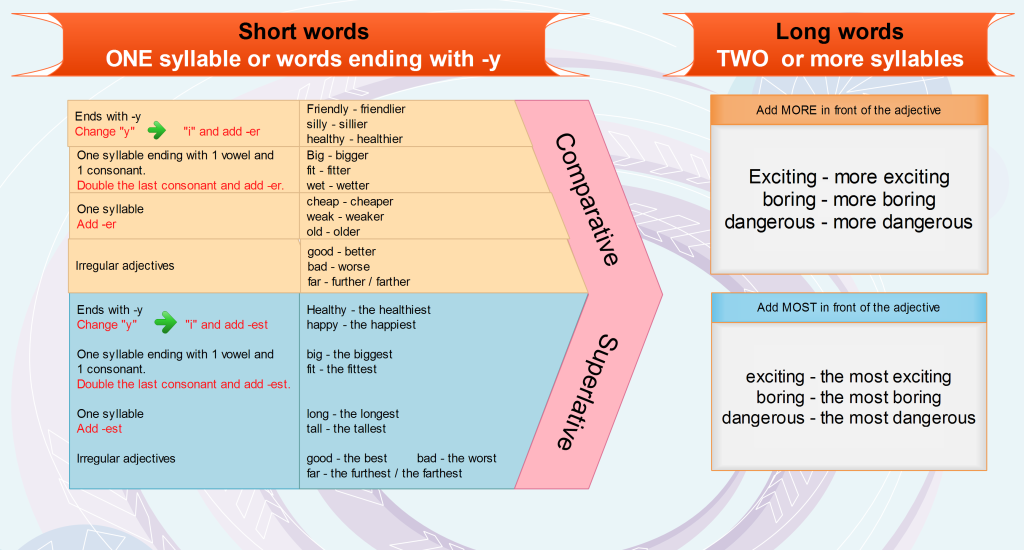
Irregular adjectives
You have to learn the following adjectives.
good – better – the best
bad – worse -the worst
far – futher / farther – the furthest / the farthest
little – less – the least
Games
Comparatives and superlatives – Teacher invaders
In the second game you have to complete the sentences with the correct form of the adjective.
Comparatives and superlatives – PenaltyTo say dates in English is quite simple. However, as there are two ways to do this, students often get confused and mix both of them together. I hope that this post will help them clarify this extremely important area.
Dates – mind map
To be able to say dates in English correctly, it is necessary to know the ordinal numbers. Most of the ordinal numbers are made by adding the ending -th.(If you have a problem with this sound, I strongly recommend this BBC video) However, as always, there are several exceptions to this rule. The rules are explained in ther upper right corner of the mind map.
Notice the way the change of spelling of the words twenty and thirty. In English there are only two ways to say dates. You can either start with the month and then say THE and the ordinal number, or you can say THE + the ordinal number + OF + the month. Do not mix the two ways!!!
Dates – games
In the second game, called On target, your task is to choose the correct way a given date is said. I believe that if you play this game twice or three times you will learn the correct way to say the dates.
Dates – On targetIf you come to this site using a mobile device you might hate the fact that most of the games do not play there. That is why I am trying to add a few HTML5 games to play even there. Here is one of them.
Find the ordinal numbers: Ordinal numbers – Find the words
Dates – conclusion
Here we go at last! This is the last chapter of the story Two Dates. Are you curious what will happen to Alan, Martha and Bruce. I hope that the ending of the story will surprise you at least a bit and that you will like it.
So, what are you waiting for? Start with the mind map and revive what happened in the previous parts of the story Two Dates. Then translate the vocabulary on the vocabulary branch. This time some of the words are pretty challenging. And once you know the new words start the story video.
In the end answer the comprehension questions in the mind map and discuss your opinions with a partner. Good luck and enjoy the story.
Two Dates – story mind map
Advert:
[showmyads]
Two Dates – the story
Two Dates – games
If you are using a mobile phone or an iPad you might be interested in another HTML5 game, you can go to Two Dates Chapter 3 where there is the memory game in HTML5.
The last game is in Flash and it is called Half a minute. Your task is to unjumble the words in 30 seconds. Good luck 🙂
If you prefer reading the story, here is the text of the fourth chapter:
Two Dates – chapter 4 story
Alan decided to hide out in the library where it was quiet, and he knew most people would not be able to find him. He knew he was not a bad kid. True, he might not have the best qualities, or he might not be the best student, but he knew he was a pretty nice guy. He loved animals, and he loved helping people out. He did not deserve such a cruel treatment, so why were they so mean to him?
The sound of footsteps coming up towards him made Alan look up. Susan stood in front of him, with her arms across her chest.
Alan frowned. “What do you want from me?” he said rudely. “Haven’t you guys had enough?”
The look on Susan’s face softened. “I did not laugh at you Alan. That was mean of Martha.” She smiled gently at him and asked him if she could sit next to him. Alan grudgingly agreed. He was wary. Susan could pretend to be nice and then humiliate him again in front of the whole class just like Martha had.
“Why did she do that?” Alan asked Susan. “What did I do wrong?”
Susan shrugged. “Kids do stupid things. Kids can be mean. Martha is just being immature. Forget about her.”
Alan groaned and hid his face into his hands. “I’ll just switch schools. I can never go back to class again.”
Susan hit Alan lightly on the hand. “You can’t give up just like that!”
Alan sighed. “You don’t understand! Everyone laughs at me. I’ll never be able to go to the dance. I’ll be at home alone again, this year.”
Susan smiled, a little shyly. “Guess what,” she said. Alan looked at her. Susan was beautiful too, in a different way. She had a kind face, and a very sweet smile. “I could be your date for the dance.”
Alan stared at her in shock. After a while, he started laughing. “I won’t fall for that again. You’ll humiliate me too, like Martha did.”
Susan rolled her eyes. “Sure Alan. I skipped class, argued with Bruce in front of the whole class, let Martha yell at me too, defended you and looked for you all over the school, just so that I could humiliate you.”
Susan smiled at him. “C’mon, you can’t let bullies ruin your day. Chin up! The day isn’t over. So will you come to the dance with me?”
Alan hesitated for just a moment, enough for Susan to say, “What? Do you think Martha is prettier than me? Is that why you don’t want to come with me?”
“No!” Alan protested, and before he could even think, he grabbed Susan’s hand tightly. “I will come with you,” Susan smiled and kissed him lightly on his lips.
“See you in the class,” she said and walked away.
Alan smiled.
It was going to be a very different year indeed.

